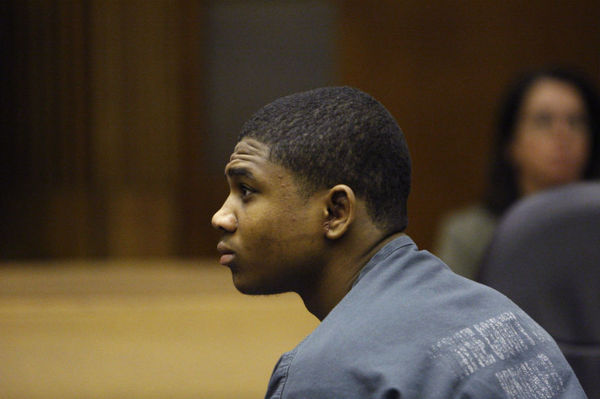Guilty Of Innocence
securewebsite 0 Comments Uncategorized
 This ladies and gentlemen this is Davontae Sanford, a 23-year-old exoneree from Detroit, Michigan. When Sanford was just 14 years-old, he plead guilty to the involvement of the murders of four individuals, but he was innocent! Now I know that sounds a little bizarre to most, thinking “why would someone say they were guilty of something they didn’t do,” but the truth is, it happens more than our criminal justice system is willing to admit. In a popular article entitled “Why Innocent Plead Guilty” by Jed S. Rakoff, it states that approximately 95 percent of felony cases end in plea bargaining, but does that mean that 95 percent of those accepting these pleas are guilty? No!
This ladies and gentlemen this is Davontae Sanford, a 23-year-old exoneree from Detroit, Michigan. When Sanford was just 14 years-old, he plead guilty to the involvement of the murders of four individuals, but he was innocent! Now I know that sounds a little bizarre to most, thinking “why would someone say they were guilty of something they didn’t do,” but the truth is, it happens more than our criminal justice system is willing to admit. In a popular article entitled “Why Innocent Plead Guilty” by Jed S. Rakoff, it states that approximately 95 percent of felony cases end in plea bargaining, but does that mean that 95 percent of those accepting these pleas are guilty? No!
Often times defendants are faced with the uncertainty of their fates left to a jury if they go to trial. Prosecutors and defense attorney’s compile these fears of uncertainty by citing the likelihood of an extended prison sentence and in some cases even death! Defendants under pressure and filled with fear, and hopelessness that anyone will listen, decide to plead guilty despite their innocence. Sanford stated in his interview with CNN that after two days of interrogations he plead guilty. He stated that he recanted his plea, but during his trial, he realized that his attorney was not properly defending him and decided to plead guilty again. What’s even sadder about this story is that the hitman responsible for the killings, confessed two weeks after Sanford was sentenced, turned over the murder weapon, admitted that Sanford was not a part of the crime, but prosecutors still refused to release him, causing him to spend eight and a half years in prison for a crime he never committed. Had it not been for the innocence project at the University of Michigan, prison is where Sanford would have died for no reason at all besides the inherent brokenness of our criminal justice system.
In a prison system that houses millions of inmates, there are thousands of men and women just like Davontae Sanford, but unfortunately, most of them won’t have the benefit of the innocence project to help exonerate them. Sanford has lost all of his teenage years in prison. No high school sports, no prom, no growing up with his friends and family, no fun teenage memories, for Davontae Sanford, his teenage years amounted to a nightmare caused by a deteriorating criminal justice system. Are there any viable solutions to this problem? Sure, perhaps the punishments should be raised on those found guilty of ineffective assistance of counsel. Perhaps prosecutors that fail to hand over exculpatory evidence willingly should be disbarred and sent to prison. Perhaps judges that don’t question the validity of such bargains should be held accountable and repremainded, but will that ever be the case? How does the powerless successfully fight the powerful? Only with the help of the powerful will the powerless ever prevail. It is up to those that are members of this broken system, to challenge the system, so that we can have less Davontae Sanford’s in our prisons. People like Valarie Newman, the Public Defender who worked on Sanford’s case for years until she received favorable results. People who are committed to a greater cause, a greater form of justice, people who are committed to the truth. Ms. Newman said, “When you work for years to shine light on an injustice and your work comes to fruition in a positive manner it’s extremely gratifying.” Let’s seek gratification in curing injustice by providing true justice.